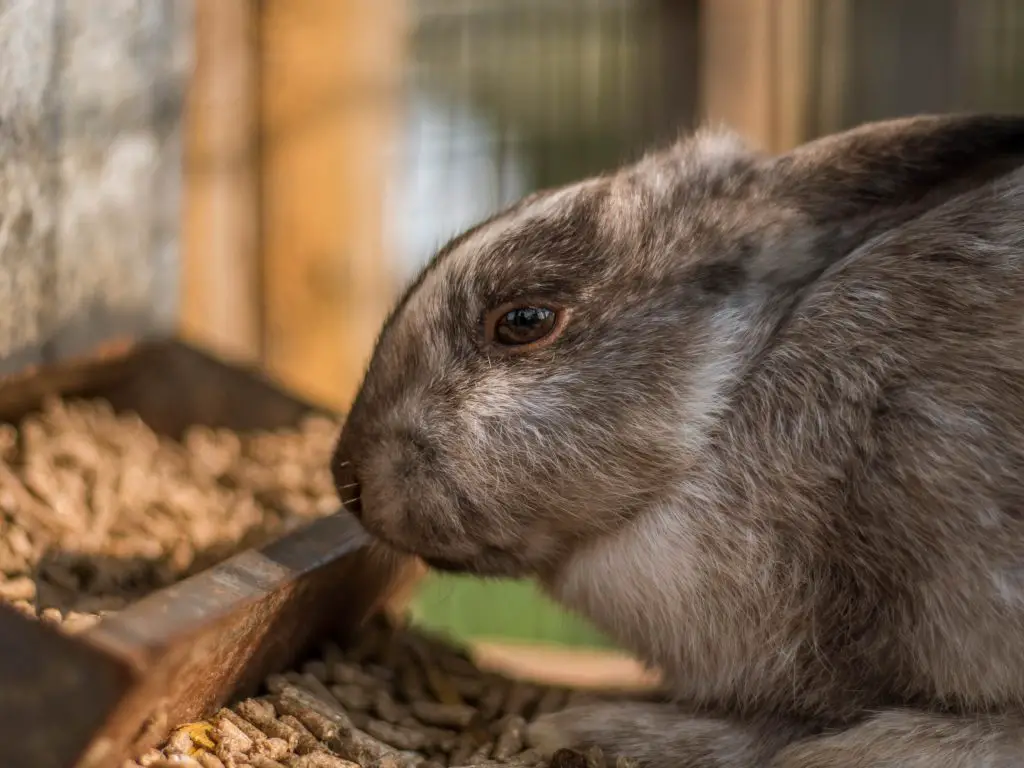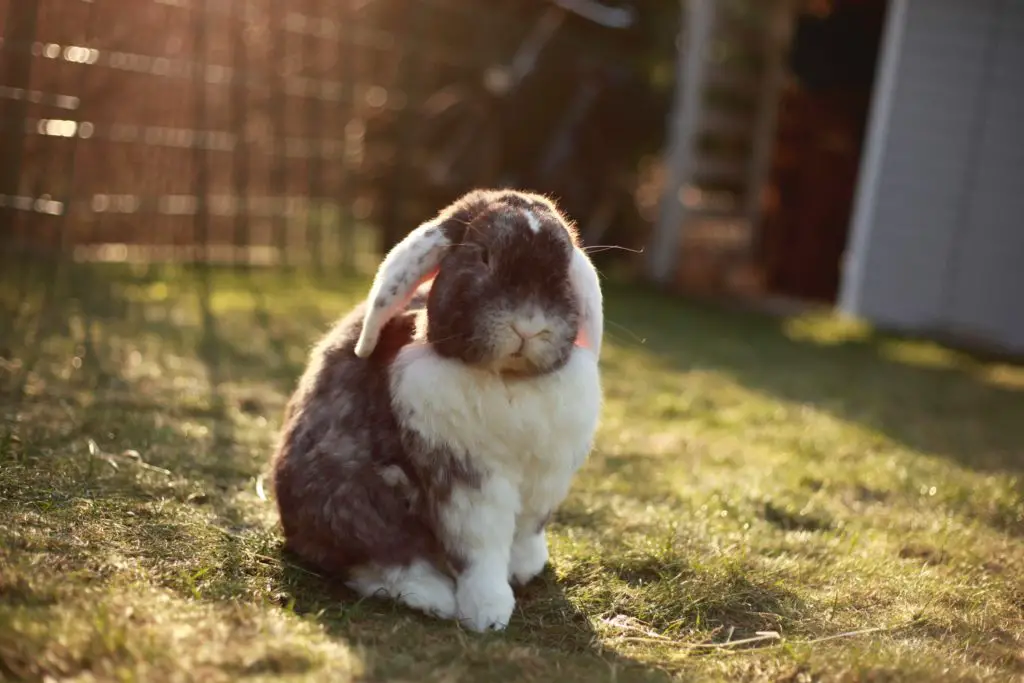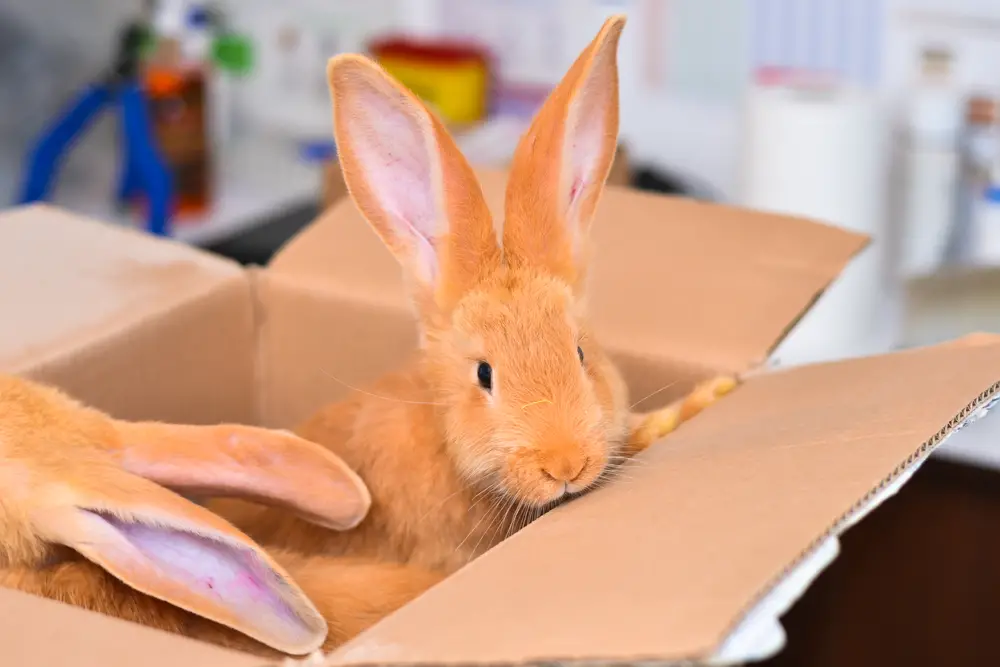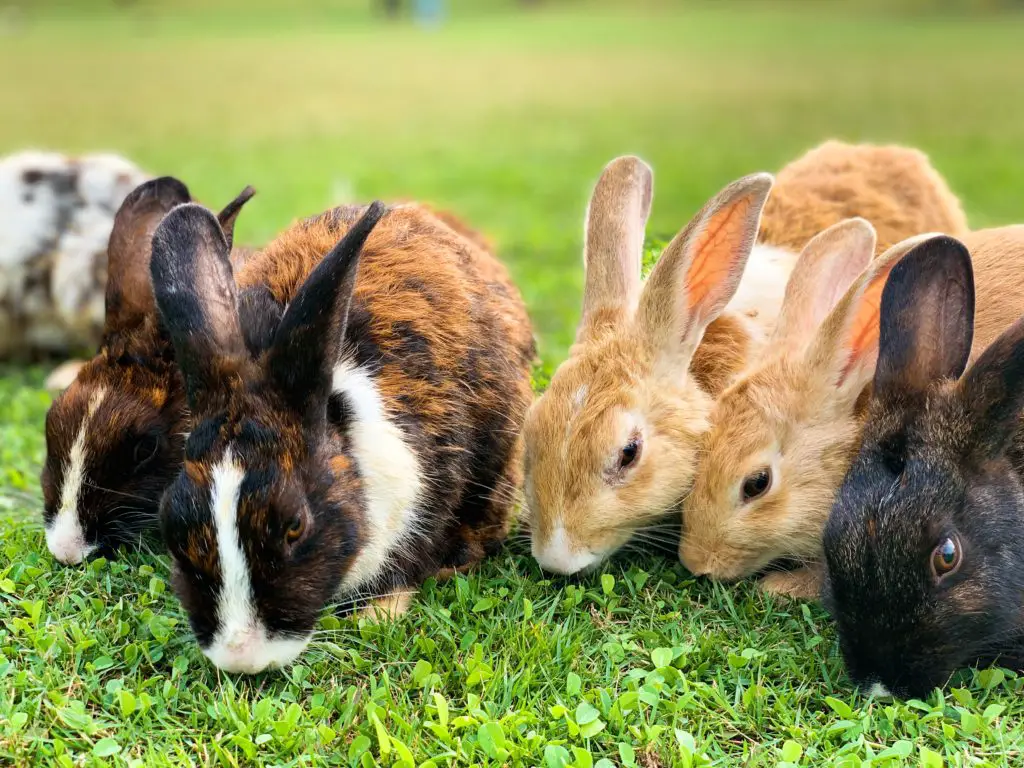It’s not a secret that pallets for rabbits are a great and convenient choice to maintain your rabbit’s nutritional needs. But can rabbits survive on just pallets?
Rabbits can survive on just a pellet-based diet since they provide all the necessary nutrients. However, for most rabbits, ie. those kept as house pets, this is not the best type of diet for their health. It is best to include some veggies and hay as well. Rabbits kept for other purposes, such as breeding and meat livestock, are more suited to a pellet-only diet.
Today we will tell you all about the benefits and drawbacks of a pallet-only diet for your rabbit so you can make an informed decision.
Can Rabbits Eat Only Pellets?
If rabbits are fed good quality pellets from a reputable brand, then they can eat only pellets. However, it is not recommended for the common house pet rabbit and in many cases would be strongly advised against. A rabbit fed only pellets could experience multiple health problems.
Those rabbits that are better suited to a pellet-only diet would be those kept primarily for breeding purposes and to be sold for meat. Because pellets offer such a concentrated form of nutrients, the rabbit will gain weight very quickly, which is what the seller wants.
They also won’t be concerned about future health problems as the rabbits only have a short life span.
Benefits Of a Pellet-Only Diet For Rabbits
Let’s first discuss the benefits that the pallet-only diet can bring to your rabbit.
All-in-on type of food
One benefit of a pellet-only diet for rabbits is that all of a rabbit’s dietary needs can be met with just this single food. Reputable brands will also fortify their products with several beneficial vitamins and minerals, all of which are helpful to the rabbit.
A health indicator
Pellets are beneficial for older frail rabbits as they can help them to gain weight if they are underweight. Pellets can also be an easy way to check if your rabbit may have any health problems. Rabbits are usually very quick to consume their pellets, so if you notice that they have suddenly stopped eating them, then it’s probably an indication that something is wrong.
Inexpensive option
Rabbit pellets are a relatively inexpensive food choice and are a convenient way to feed your pet. Pellets also come in different varieties so they can be selected to suit the specific age of your rabbit. Pellets keep well when stored correctly and therefore can be purchased in bulk.
Drawbacks Of a Pellet-Only Diet For Rabbits
As mentioned previously, it would be very rare to recommend a pellet-only diet for rabbits.
Potential weight problems
One of the main problems associated with this type of diet is obesity. A house rabbit does not require such a concentrated source of energy, as found in pellets.
Vitamin disbalance
Other health problems can be caused by the high calcium and protein content found in many pellets. For example, too much calcium can cause damage to the rabbit’s kidneys. While it doesn’t occur immediately it will eventually if this is the only food they are consuming.
Rabbits need hay and vegetables
As all rabbit enthusiasts will tell you, the most important and largest part of a rabbit’s diet should be hay. A rabbit that is only eating pellets will miss out on the essentials that hay provides. One of the major benefits of hay occurs when rabbits chew it. The coarseness helps in grinding down their teeth. This is needed as a rabbit’s teeth are continually growing.
How Many Pellets Should a Bunny Eat In a Day?
Ideally, a rabbit should only be fed a small number of pellets per day. Below are the recommended amounts, as prescribed by numerous vets.
- Small-sized rabbit (5 – 7 lb) – ¼ cup daily
- Medium-sized rabbit (8 – 10 lb) – ½ cup daily
- Large-sized rabbit (11 – 15 lb) – ¾ cup daily
Keep in mind that all pellets sold in pet stores are not the same. If you don’t choose a high-quality pellet it can be similar to feeding junk food to your child. Pellets mixed with nuts and seeds can be detrimental to a rabbit’s digestive system. A good quality pellet will be high in fiber and low in fat, protein, and calcium.
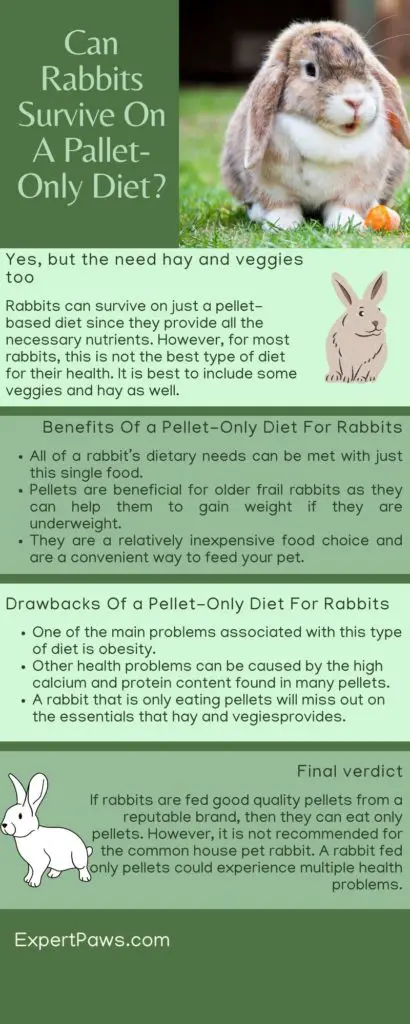
Should Baby Rabbits Have Unlimited Pellets?
Unlimited pellets for baby rabbits should not cause problems, as they are still growing. The protein and calcium in pellets are actually very beneficial for their growth during these early stages. Alfalfa-based pellets are great for young rabbits but should not be given to rabbits after the age of 5 months.
Sometimes if baby rabbits have unlimited pellets, it can cause problems later when you have to decrease the amount as they get older. The rabbit will become so used to eating only pellets, it will be reluctant to try other foods. For this reason, people choose not to give unlimited amounts even when they are young.
It should be noted that a baby rabbit may start consuming a very small amount of pellets at 3 weeks of age. After 7 weeks of age, the amount can be increased.
What Happens If You Give a Rabbit Too Many Pellets?
Nothing will happen immediately if you give your rabbit too many pellets. However, it will definitely lead to obesity in the long run. An overweight or obese rabbit is going to have a greatly reduced life expectancy. A house rabbit, which normally has a life expectancy between 10 and 12 years, may now only reach 5 or 6 years of age.
A serious, and often fatal condition that rabbits can develop is Gastrointestinal Stasis (GI stasis). Rabbits have sensitive digestive systems and often GI stasis can result due to a lack of fiber in a rabbit’s diet. Although most pellets contain some fiber, it is usually not enough. Therefore, if their diet is only (or mostly) pellets this could become a very real problem.
Pellets high in calcium and protein were mentioned previously. If rabbits are consuming too many pellets, and therefore absorbing too much calcium, it can lead to a variety of urinary tract issues. Pellets high in protein can place stress on the digestive system.
In Conclusion
“Can rabbits survive on just pellets,” should not be the main consideration, so much as asking what the best possible diet is for your rabbit. As you have read, a diet based solely on pellets is not going to be sufficient for your rabbit. And in most cases could lead to serious health issues.

My name is Katie, and I have had different pets at home for as long as I can remember. While I can definitely say I love all animals in general, my heart belongs to cats and dogs. I know you are supposed to choose one or the other, but I could never really decide. I’ve also owned hamsters and fish when I was a kid, and they filled my childhood with very delightful memories.

